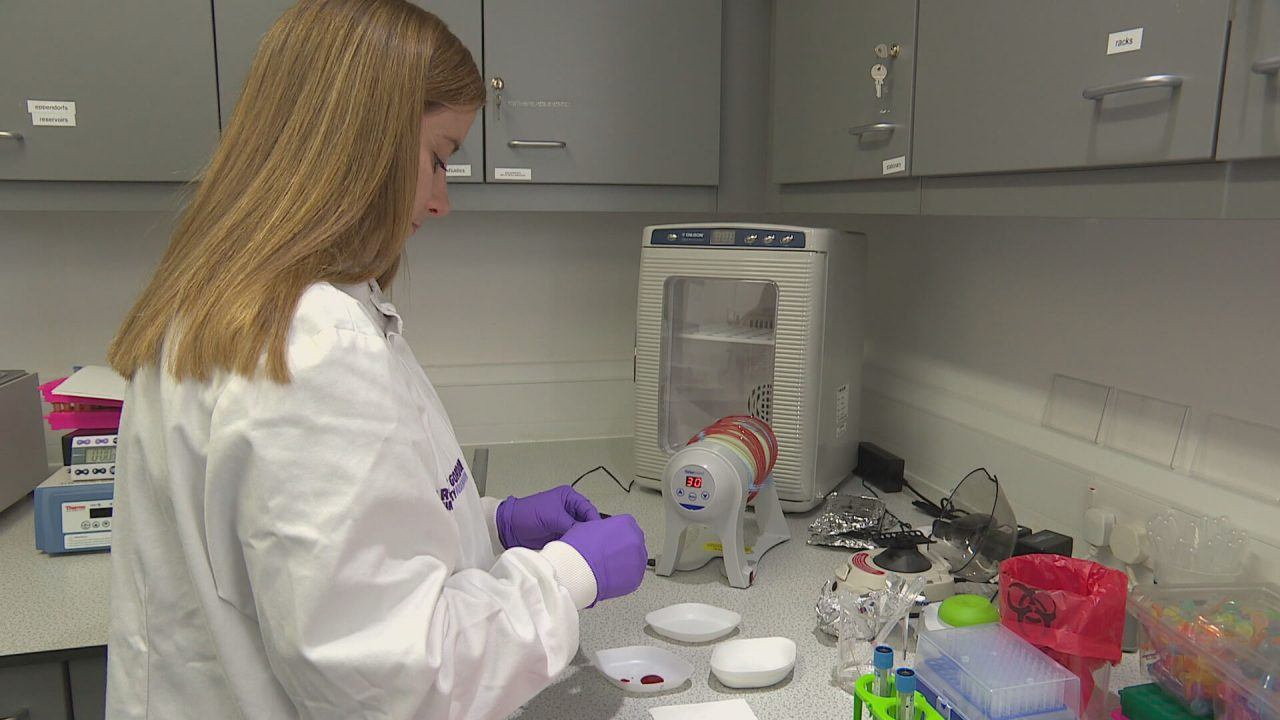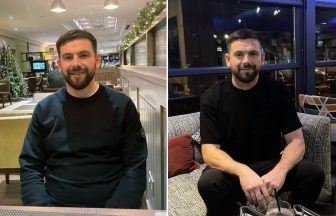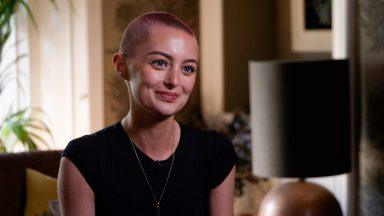New research in the North East could cut waiting times for thousands of women with endometriosis.
Robert Gordon University in Aberdeen hopes to help identify the causes of the debilitating condition – estimated to affect 100,000 women in Scotland – and new ways of testing for it.
Researchers will investigate the blood clotting factors that occur during a menstrual cycle.
After the three-year project, it’s hoped that the condition could be diagnosed through a simple blood test.
Dr Gael Morrow, who is leading the research, told STV News: “Any understanding in the pathology of endometriosis will help to improve patient care, for me it’s really about shortening that diagnosis time.
“We can take a blood sample from a patient, run a quick test in the lab if their levels of a particular protein are elevated, then we can say this patient likely has endometriosis.”
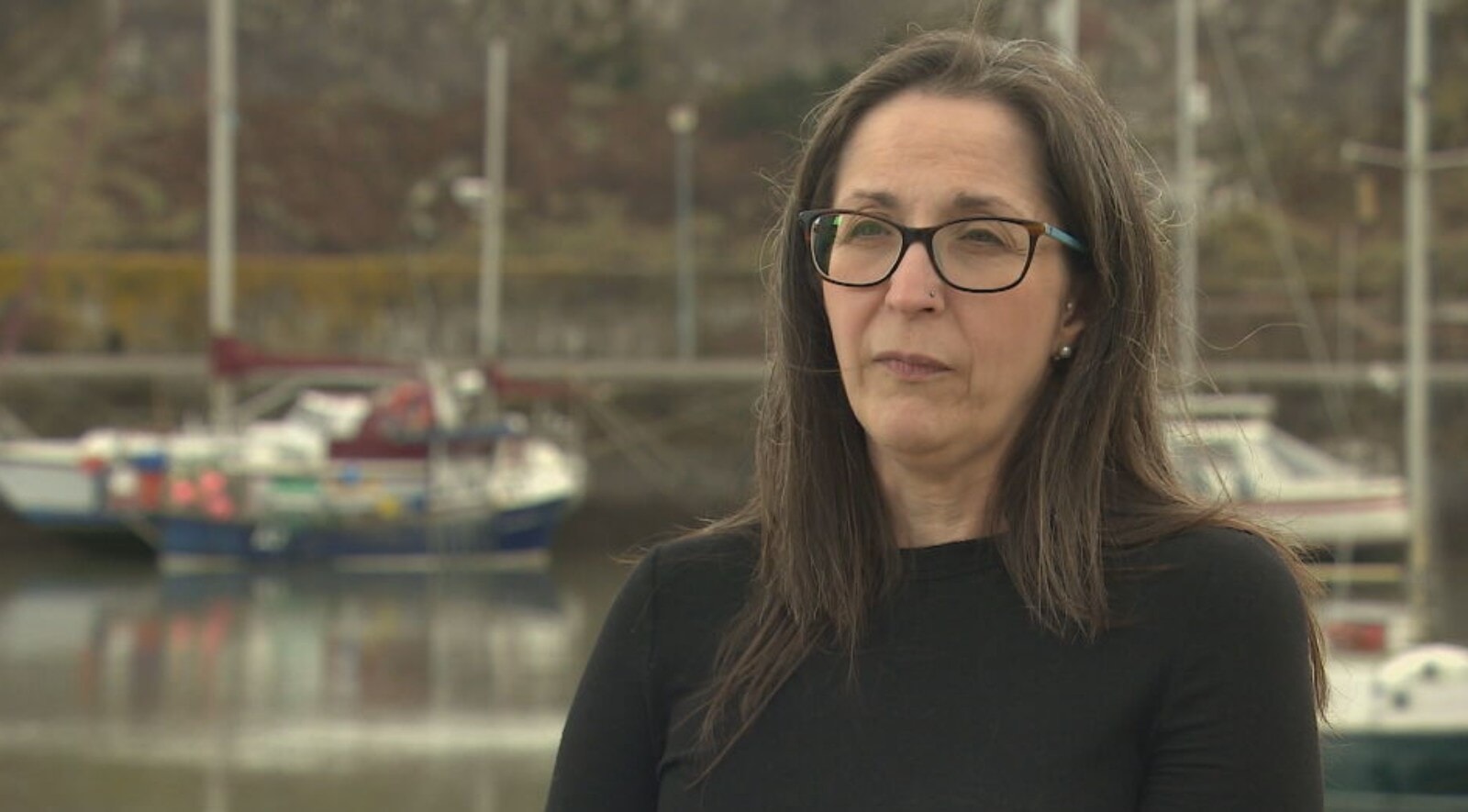 STV News
STV NewsEndometriosis is a condition where cells similar to those in the lining of the womb grow in other parts of the body, causing chronic pain and irregular periods and can lead to fertility issues.
Currently, it can only be diagnosed through an invasive keyhole surgery.
Marion, from Aberdeenshire, has suffered from endometriosis for almost 30 years.
Since she was 14 years old, even before her menstrual cycle started, she was in extreme pain and experienced heavy periods.
After countless doctor appointments of not feeling her voice wasn’t being heard, she was finally diagnosed with endometriosis after decades of pain.
She said, “Whenever you saw a GP, they just said it’s a bad period – ‘everybody gets bad periods, and the pain isn’t as bad as you think it is.’
“I’ve had the coil; I’ve had the injection, and I’ve had every brand of contraceptive pills I can think of, but the biggest problem is not being heard and not being listened to and not being taken seriously, especially when you’re a teenager.”
As part of Endometriosis Awareness Month, Marion Graham believes too few medical professionals are fully aware of its impact, which delays its diagnosis.
Marion said: “There’s just not enough education for medics to understand the human reproductive system isn’t just purely for having babies.
“You need to actually investigate when things do go wrong.”
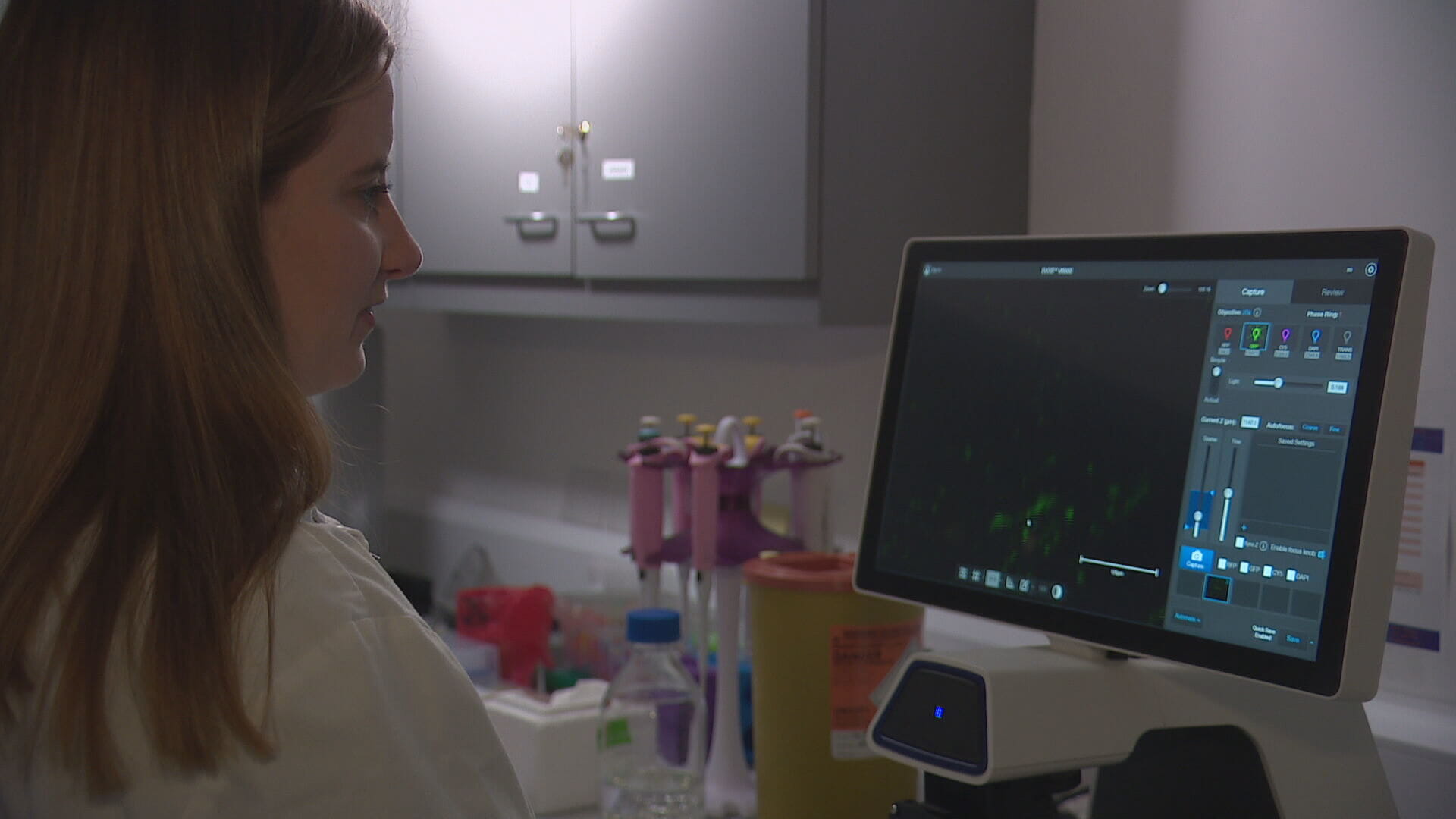 STV News
STV NewsDespite endometriosis being one of the most common gynaecological conditions, the charity Endometriosis UK estimates that only 50% of young adults, including health professionals, know about the condition.
Dr Lucky Saraswat, who is an endometriosis specialist in Aberdeen, believes more focus on education would improve patients’ lives.
She said: “We definitely need to improve awareness and education both within the public and healthcare professionals, as well as more funding for research and management of endometriosis.
So, we need to design services that can provide bespoke care or individualised care to people with endometriosis.”
Marion wants others to know they should not be struggling alone and is advising for people to make sure they make their voice is heard.
She said: “Keep a diary of your symptoms, go to your GP and show your GP exactly what you’re going through, and just keep shouting that want to be seen by a specialist.”.
Follow STV News on WhatsApp
Scan the QR code on your mobile device for all the latest news from around the country


